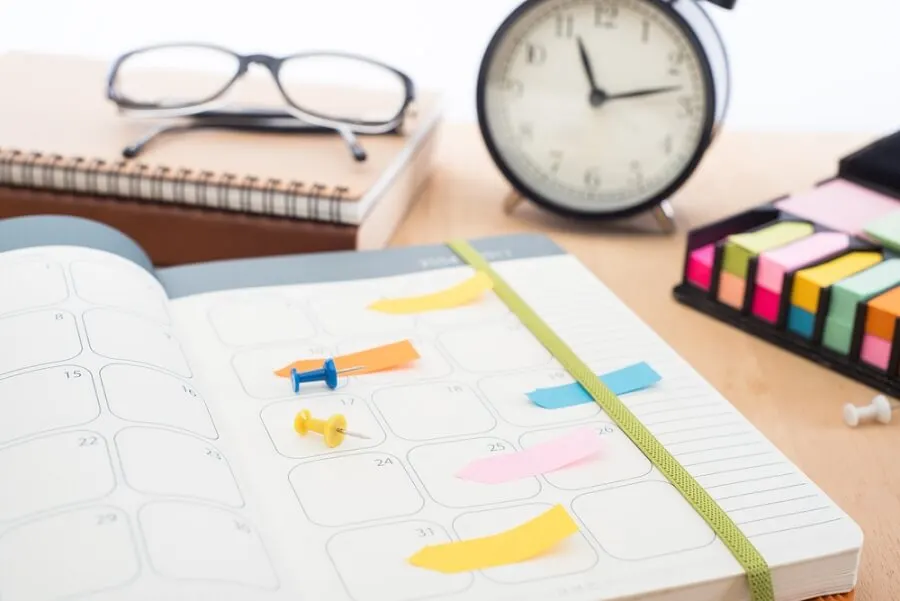Why Is It Important to Have Time Off?


Reviewed and approved by the psychologist Elena Sanz
Do we truly understand the importance of having free time? In a society as busy and connected as the one we live in, sometimes we spend those hours when we’re not working or doing anything looking at the phone or with periods of total inactivity. This can have consequences on both our mental and physical health.
Before we begin, it’s worth defining what free time is. A synonym would be “leisure.” Essentially, it’s all those hours in which we’re not working, and we don’t have to dedicate them to housework.
Making the most of our time is essential for our health, although sometimes it seems that there isn’t enough of it! However, if we organize ourselves well, there’s time for everything.
What do we spend our time on?
The first step to learning to enjoy having free time is to detect how we’re spending all those free hours we actually have. To do this, it’s a good idea to make a list, because each person spends their time in a different way.
It may be spent in front of the TV, scrolling on Instagram, or playing video games. Knowing how we spend our time will allow us to detect what we should change.
Let’s keep in mind that the day has 24 hours, 8 of which we spend sleeping and another 8 are spent working. We have, therefore, 8 hours left, from which we can subtract 2-3 hours to eat. So there are between 5-6 hours of free time to enjoy and take advantage of.
The problem with not having enough free time is that we don’t manage the hours of the day well. Maybe when we’re not at work, we continue to think about it; or, perhaps instead of practicing some sport, we prefer to be lying on the couch looking at social networks.
These “time thieves” can harm us in the long run, increasing our stress, anxiety, and discomfort.

We think you may be interested in reading this, too: Ideas for Creating a Relaxing Corner at Home
Having free time seems like a luxury, but it’s important for our health
Having free time may seem like a luxury, but it is within reach. An example of how this situation is starting to be worrying is the leisure time residences, which have not been created for the elderly, but for those who work. The Junta de Andalucía in Spain has even explained that these are vacation places to take advantage of a person’s days off.
However, we don’t have to go that far to find out how we spend our time and take measures to solve this. To begin with, it’s essential to take a piece of paper, and a pen and make a circle with all the hours in the day.
Then, we should distribute them. For example, 8 to sleep, 8 to work, and 8 for various activities (eating, sports, reading, meeting friends).
There are applications on the cell phone that can also help us to manage our free time and really enjoy it by showing us a more visual way to organize it. One such option is My Daily Planner. It’s possible to organize each day in a better way with colors and in a very nice way so that we can have time for everything.

Like this article? You may also like to read: Biofeedback, A Relaxation Technique to Fight Stress
Reasons to have free time
We may understand how important it is to have free time, but we may not have taken it seriously yet. Daily responsibilities and arriving home exhausted cause us to become lazy. Instead of doing something that allows us to clear our heads, we sit in front of a screen.
So here are some reasons to remember when we don’t seem to want to do anything:
- Frustration will soon set in. We will start to feel worse and worse, with a feeling that the 24 hours in a day are not enough and that we only live to work, to take the children to school, or to be on constant alert for unforeseen events.
- Stress can set in. This will translate into insomnia, malaise, mood swings, and anxiety. Symptoms such as hysterical indigestion and tension headaches can alert us that our stress has gone too far.
- We will begin to question the meaning of our existence. When we have no time for ourselves, we will not find meaning in life. As the popular saying goes: “You have to work to live, not live to work.”
Free time exists, even though we have long believed the lie that it doesn’t. There’s always an hour when we can enjoy going for a walk, meditating for 10 minutes, baking that cake we want so much to try, or reading a book.
When we’re planning our day to make the most of all the hours it has, let’s not forget to make a list of what makes us feel good. These activities will allow us to be calm, get away from work and responsibilities, focus on ourselves, and to truly take care of ourselves.
All cited sources were thoroughly reviewed by our team to ensure their quality, reliability, currency, and validity. The bibliography of this article was considered reliable and of academic or scientific accuracy.
- Chío García, M. G. (2019). Tiempo libre y su efecto sobre la salud mental en personal de enfermería del Instituto Nacional de Rehabilitación (INR), Luis Guillermo Ibarra Ibarra (Doctoral dissertation, Universidad Autónoma Metropolitana. Unidad Xochimilco).
- García-Soidán, J. L., Boente Antela, B., & Leirós-Rodríguez, R. (2020). ¿ Los menores españoles, en su tiempo libre, prefieren dispositivos electrónicos o actividad física?. Sportis, 6(2), 347-364.
- Zamora Macorra, M., & Cruz Flores, A. C. (2011). El papel del tiempo libre en la salud de un grupo de conductores de carga. Salud de los Trabajadores, 19(1), 47-56.
This text is provided for informational purposes only and does not replace consultation with a professional. If in doubt, consult your specialist.








